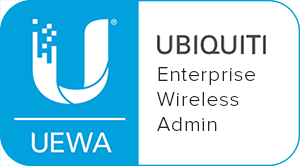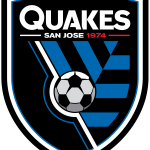On August 10, the Securities and Exchange Commission emailed Axon Enterprises, which makes police body cameras and Taser stun guns, with a few questions about the company’s accounting practices. No response.
In September, John Cash, the accounting branch chief at the SEC, sent a second email, asking for a response to the initial inquiry. Nada.
Later that month, on September 20, Cash wrote again to say that its inquiries remained “outstanding and unresolved,” and that the agency would now proceed to make its correspondence with the company public.
“As you have not provided a substantive response, we are terminating our review and will take further steps as we deem appropriate,” Cash wrote, without elaborating. Still: nothing.
Then on Thursday, Axon said in a public SEC filing that it had finally received the emails: They were stuck in the spam filter / folder of the company’s new chief financial officer. Axon said it only discovered the agency’s queries on October 19th, and it now planned to respond within the next seven days. The company’s stock price dropped by over 6% on the news.
Axon’s SEC filing attributed the problem to “miscommunication issues,” but in a statement emailed to Fast Company on Friday, it elaborated:
‘Historically the SEC has sent hard copy letters. In this instance they sent the request via email to one individual that had never corresponded with the sender before and therefore the sender’s message was caught in a filter and never reached the intended recipient. Once we were made aware of the original letter and confirmed receipt we responded to the SEC and we will be providing them with responses to their questions.’
Such requests for information from regulators aren’t completely uncommon, but losing them to a spam quarantine—one made not by Axon but by an unnamed third-party vendor—is certainly an ironic accident for a company determined to be a police tech powerhouse.
The SEC requests relate to some of the company’s accounting methods. As CNN writes:
In the first letter, SEC Accounting Branch Chief John Cash asked Axon CFO Jawad Ahsan about how the company accounts for its order backlog, which the SEC noted “increased substantially” in 2016. Cash also had questions about revenue recognition for the company’s new Taser 60 program that allowed customers to pay for the weapons in monthly installments. There was also a request for Axon to disclose more information about how much the free trial program for its body cameras —which it launched early this year— could impact profit margins.
On Monday, Goldberg Law PC, a Los Angeles-based law firm specializing in shareholder rights, announced that as a result of the SEC review, it was launching an investigation into “whether Axon and certain of its officers and/or directors violated federal securities laws.”
Axon, which until April was known as Taser Enterprise, has been embroiled in controversy over its electrical weapons for over a decade. Last month, Reuters published the largest study to date of legal cases involving the company’s signature weapons.
Body cameras and software have lately become a much larger business focus amid a wave of public demand for more police oversight and a growing demand by cops for data storage and evidence management. Axon, which reported a profit of $17 million last year, still makes most of its money from weapons, but cameras and software are growing much faster, with $66 million in sales last year.
On Thursday, the same day it posted its SEC filing, Axon also announced Citizen, a digital tool for letting civilians upload video and photos to its subscription-based evidence.com police data platform. Todd Basche, a former Apple exec who’s now Axon’s vice president for product, said the tool would primarily be used for helping the police crowd source evidence to solve specific crimes.
This article was originally published on Fast Company.
About Fastmetrics, Inc. Building & Business ISP
Since 2002, Fastmetrics is the Bay Area’s only dedicated business ISP. We provide telecommunication services in California and the San Francisco Bay Area. Reliable service – backed by better live and local support. From install to 24-7 proactive monitoring, get treated like a VIP customer. Not a number by a faceless call center. We specialize in managed business internet and phones, dedicated high speed business fiber internet, business WiFi, SIP voice solutions / UCaaS and managed network services. We are a Microsoft and Cisco Meraki Partner. Our team are Certified Cisco Specialists, Ubiquiti Enterprise Wireless Accredited and Polycom Authorized Solution Advisors. We take care of your business network, so you can focus on growth.








